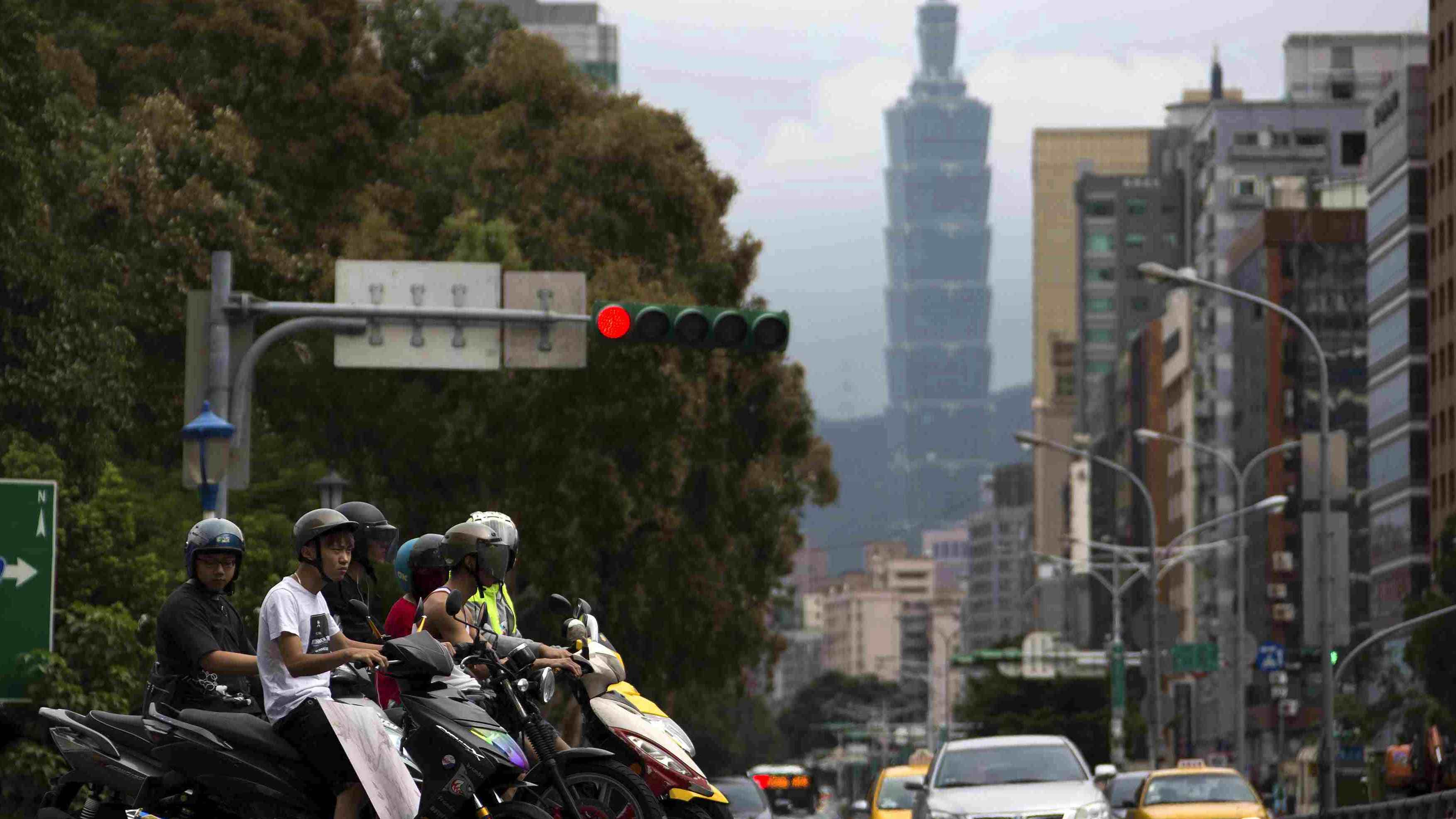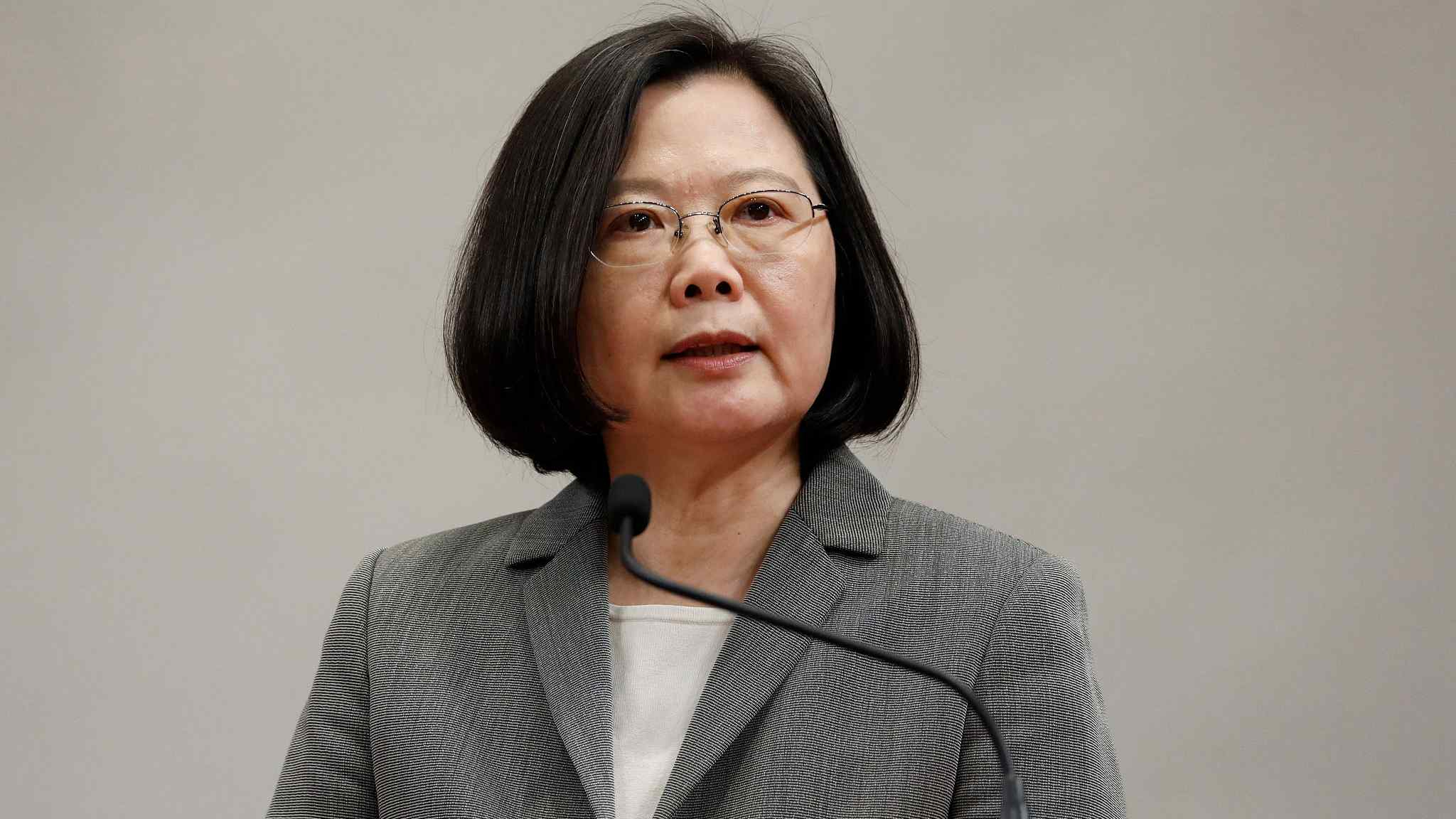
Editor's note: Lionel Vairon is the president of CEC Consulting company and senior researcher at the Charhar Institute of international relations and public diplomacy in Beijing. He is a former journalist (1985-1989), former diplomat (1991-2002) successively posted in Cambodia, Thailand and Iraq by the French government. He is also an author of many books and papers about China's geopolitics, international relations and Arabo-Islamic world. The article reflects the author's opinions, and not necessarily the views of CGTN.
The leadership elections in Taiwan have shone a light on the challenges political systems worldwide are now facing regarding the role and impact of internet and social networks.
Interference and manipulation have become numerous and no one can clearly identify the people or entities responsible for these disinformation operations. The Kuomintang (KMT) considers their candidate, Han Kuo-yu, the main victim of this disinformation campaign.
Regardless of regions, countries or political parties, it has now become extremely difficult to objectively identify the perpetrators of these campaigns. The supposed Russian interference in the 2016 American elections is a compelling illustration, as four years later the investigation is still ongoing.
In reality, the recent Taiwan leadership elections, for which Democratic Progressive Party (DPP)'s candidate Tsai Ing-wen was re-elected, has far less impact on Taiwan's relationship with Beijing than what has been suggested by various media.
During the 2018 local elections, the KMT had a significant victory over the DPP despite having lost its majority at the legislative elections. This political alternation, to which the people in Taiwan are accustomed, highlights the hesitation of a population hostage to speeches using fear and threats to demonize the Chinese mainland, but which also periodically recognizes, with realism, that the "way of independence" and the confrontation advocated by the DPP is a dead end.
Han Kuo-yu, however, whose points of view expressed during the campaign had the undeniable advantage of being the candidate for negotiation, economic realism, and therefore for peace.
The clearly expressed objective of the KMT is to lead a pragmatic policy towards the Chinese mainland, attempting to reconcile, in a very progressive approach to the final reunification, the development of indispensable economic relations with the other side of the strait, especially for Taiwan's economy, which has suffered greatly over the past few years, and the preservation of its political system.
Significant progress were made during the former leader Ma Ying-jeou's mandate (2008-2016) and Taiwan, as well as Beijing, had manifested clear intentions to resolve disagreements and find solutions adapted to the situation and culture.
On a strategic standpoint, Chinese leaders believe time plays in favor of a peaceful mid or long-term reunification. However, this would require that foreign actors restrain their urge from interfering in this dialogue, especially with a mind set on the arms markets.

Tsai Ing-wen, leader of the DPP in Taiwan, southeast China.
Tsai Ing-wen, leader of the DPP in Taiwan, southeast China.
It is interesting and notable that upon being elected, U.S. President, Donald Trump called Tsai Ing-wen to ensure him of his support and to dispute – a stance that he later denied – the principle of "one-China" as affirmed by the Joint Communique on the Establishment of Diplomatic Relations between the People's Republic of China (PRC) and the United States of America signed on January 1, 1979 and by the August 17, 1982 PRC-U.S. Joint Communique, paragraph 6 of which stated that "the United States Government states that it does not seek to carry out a long-term policy of arms sales to Taiwan (…) and that it intends gradually to reduce its sale of arms to Taiwan."
According to the agreements, relations between Washington and Taiwan would be limited to "cultural, commercial, and other unofficial relations." Obviously, these commitments have not been respected, and this policy has contributed to the increase in tensions between both sides of the strait.
Chinese President Xi Jinping's declaration in 2019 claiming that if necessary, the PRC might conduct military operations in order to prevent the independence of the island has sometimes been used to denounce the Chinese threat and to accuse the Chinese president of having a new kind of aggressive stance.
However, there was in fact nothing new about this declaration, as the past Chinese leaders have always considered "Taiwan's independence" as a casus belli which could lead to a military response.
Despite the sale of American weapons, it is obvious to all analysts that Taiwan would not be in a position to militarily resist the People's Liberation Army and that very few American soldiers would be willing to die for Taiwan.
Historical claims aside, "Taiwan's independence" would strategically speaking constitute an unacceptable threat to the Chinese mainland. The prospect of the establishment of American troops and bases on the island or dependent territories, as it is already the case in South Korea and Japan, would only accentuate the encirclement of Chinese territory by a clearly hostile foreign power. Any serious and unbiased analysis of the situation can only confirm this perception.
Despite Tsai Ing-wen's victory and her immediate declarations towards Beijing restating her objection to a reunification based on the principle of "One Country, Two Systems," discussions will have to be re-initiated between Beijing and Taiwan as the leaders bear the heavy responsibility of avoiding military conflict, which would go against the interests of both populations.
However, in order to do so, the winning party DPP will have to make the decision to resume the dialogue on a solid basis and independently, away from political and economic pressure coming from their American ally. Any other policy would be highly reckless.
(If you want to contribute and have specific expertise, please contact us at opinions@cgtn.com.)